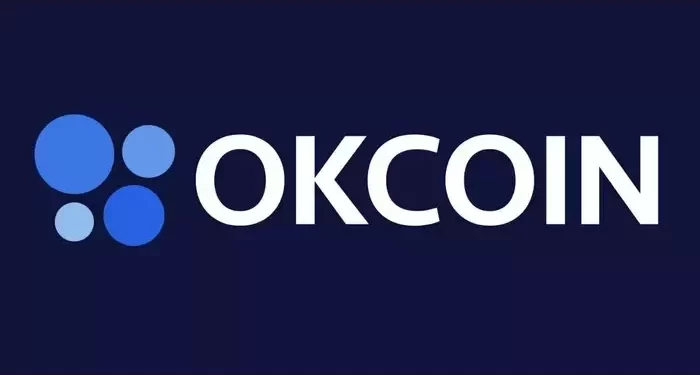The emergence and development of cryptocurrency have revolutionized the global financial landscape. OKCoin, as one of the major players in the cryptocurrency exchange market, has gained certain popularity and influence. Understanding in which countries it is used is crucial for comprehensively grasping the global spread and acceptance of cryptocurrency trading platforms.
United States
Regulatory Framework
In the United States, the regulatory environment for cryptocurrency is complex and fragmented. Different states have their own regulatory measures. For example, some states like New York have strict BitLicense requirements. OKCoin has to comply with a series of regulations such as anti-money laundering (AML) and know-your-customer (KYC) procedures. It needs to register with relevant regulatory authorities and disclose certain information to ensure the legality and security of transactions.
Market Demand
The US has a large number of cryptocurrency enthusiasts and investors. The tech-savvy population and the presence of a vibrant startup ecosystem contribute to a significant demand for cryptocurrency trading. OKCoin offers a variety of trading pairs and relatively advanced trading tools, attracting both individual and institutional investors. The competition in the US market is intense, with both domestic and international exchanges vying for market share. OKCoin has to continuously improve its services and security measures to maintain its competitiveness.
User Behavior
US users are generally more concerned about the legality and regulatory compliance of exchanges. They also have higher expectations for the transparency and fairness of trading. OKCoin’s efforts in meeting regulatory requirements and providing reliable trading platforms have influenced user adoption. However, due to the complex regulatory environment, some users may be cautious about using OKCoin or may choose other more locally regulated exchanges.
China
Regulatory Changes
China has experienced significant regulatory changes in the cryptocurrency field. In the past, there was a booming cryptocurrency trading market. However, later, the Chinese government tightened regulations to prevent financial risks and illegal activities such as money laundering and illegal fundraising. OKCoin, like other cryptocurrency exchanges, had to suspend or adjust its operations in China. Currently, cryptocurrency trading for the general public is restricted in China, but OKCoin may still be involved in some blockchain-related research and cooperation projects that comply with regulatory requirements.
Market Legacy
Despite the regulatory tightening, China has a large number of early adopters and enthusiasts of cryptocurrency. The concept of blockchain technology has also gained wide attention. OKCoin’s previous presence in the Chinese market has left a certain mark. It has contributed to the popularization of cryptocurrency knowledge and the cultivation of a group of users with an understanding of blockchain and cryptocurrency trading.
Future Prospects
Looking ahead, if the regulatory environment in China eases in the future, OKCoin may have the opportunity to re-enter the market or participate in more legal and compliant blockchain business activities. The huge potential of the Chinese market in terms of population and economic scale means that any changes in the regulatory stance could have a significant impact on OKCoin’s global strategy.
European Union
Regulatory Harmonization
The European Union is working towards regulatory harmonization in the cryptocurrency area. The EU’s 5th Anti-Money Laundering Directive (AMLD5) has set out clear regulatory requirements for cryptocurrency exchanges. OKCoin, in order to operate in EU member states, needs to comply with these unified regulations. This includes implementing strict AML and KYC procedures, ensuring the security of customer funds, and reporting suspicious transactions. The advantage of regulatory harmonization is that once OKCoin meets the EU-wide standards, it can potentially expand its business across multiple member states more easily.
Market Diversity
The EU consists of multiple countries with diverse economic and cultural backgrounds. Different member states have different levels of acceptance and demand for cryptocurrency. For example, countries like Estonia and Malta have been relatively more open and have created a more favorable business environment for cryptocurrency and blockchain companies. OKCoin can target these markets with specific marketing and service strategies. In addition, the EU has a large number of international business and financial institutions, which provides opportunities for OKCoin to cooperate with institutional clients and expand its business scope.
User Attitudes
European users generally have a relatively rational and cautious attitude towards cryptocurrency. They pay attention to privacy protection, security, and the long-term viability of exchanges. OKCoin’s reputation, security measures, and compliance efforts play an important role in attracting European users. The EU’s emphasis on consumer protection also requires OKCoin to provide high-quality customer service and dispute resolution mechanisms.
Southeast Asia
Emerging Markets
Southeast Asia is an emerging market for cryptocurrency. Countries like Singapore, Malaysia, and Thailand have shown increasing interest in blockchain and cryptocurrency. Singapore, in particular, has a relatively friendly regulatory environment and is becoming a regional hub for cryptocurrency and blockchain businesses. OKCoin can take advantage of Singapore’s position to expand its business in Southeast Asia. It can provide trading services to local investors and cooperate with local blockchain startups and enterprises.
Market Potential
The growing middle class and increasing digitalization in Southeast Asia bring huge market potential. Younger generations in these countries are more receptive to new financial technologies. OKCoin can introduce innovative trading products and services to meet the needs of this market. However, regulatory uncertainties still exist in some Southeast Asian countries. For example, Thailand has been constantly adjusting its cryptocurrency regulations. OKCoin needs to closely monitor regulatory changes and adapt its business models accordingly.
User Adoption
In Southeast Asia, the adoption of cryptocurrency is gradually increasing. OKCoin’s brand awareness and user experience will affect its market share. It can conduct localized marketing activities, such as collaborating with local influencers and using local languages and cultural elements in its promotional materials. At the same time, improving the ease of use of its trading platform and providing mobile trading applications are also important for attracting Southeast Asian users.
Conclusion
OKCoin is used in multiple countries around the world, but its operations and market positions vary significantly in different regions. In the United States, it faces complex regulatory requirements and intense competition; in China, it has been affected by regulatory changes but still has potential in the long term; in the European Union, regulatory harmonization offers both opportunities and challenges; and in Southeast Asia, emerging markets present great potential but also regulatory uncertainties. Understanding the specific situations in these countries and regions is essential for OKCoin to formulate appropriate global strategies, continuously improve its services and compliance levels, and contribute to the healthy and sustainable development of the global cryptocurrency trading market. As the global regulatory environment and market demands continue to evolve, OKCoin needs to be flexible and adaptable to maintain its competitiveness and relevance in the international cryptocurrency landscape.
Related topics:
How Long Does OKCoin Withdrawal Take?
How Much Can You Transfer from OKCoin?

















